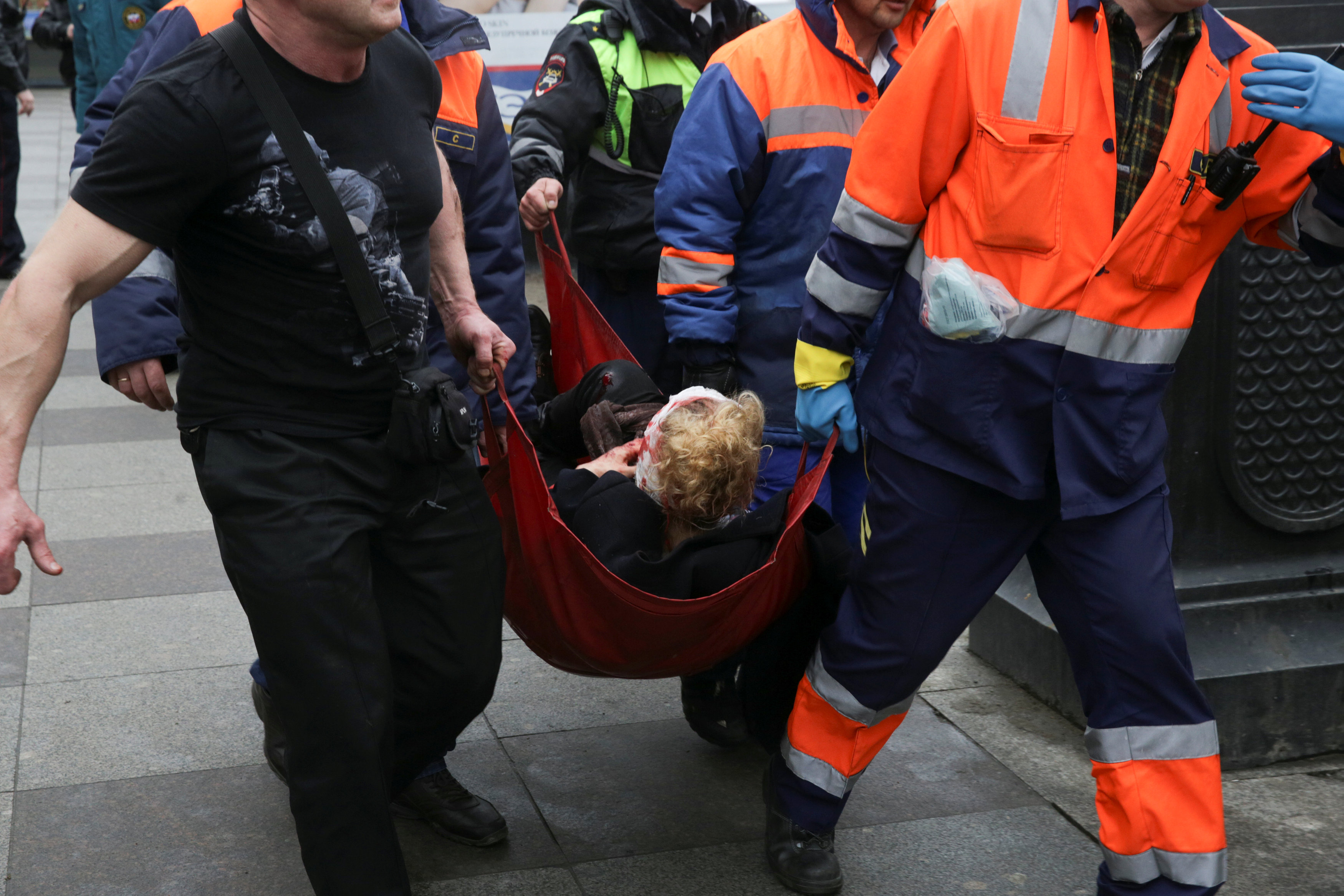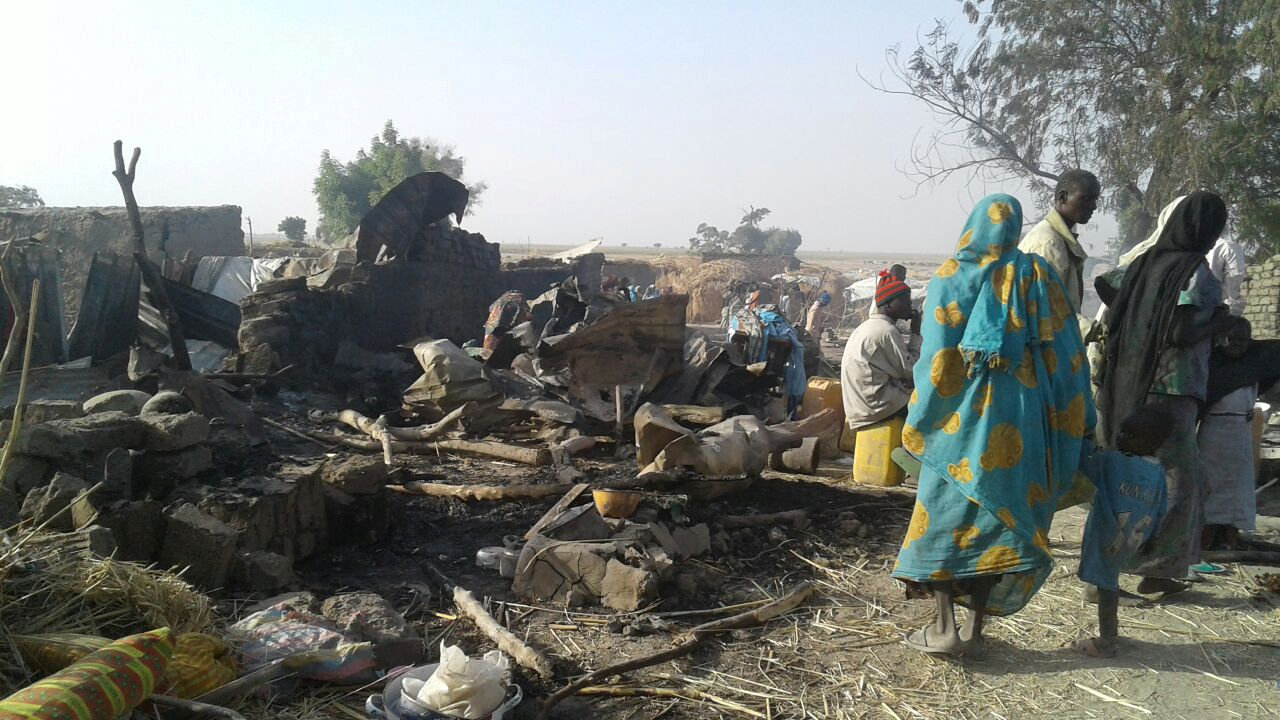
By Maria Tsvetkova and Denis Pinchuk
MOSCOW/ST PETERSBURG, Russia (Reuters) – Akbarzhon Jalilov, the man suspected of blowing up a Russian metro train, represents a new wave of radical Islamists who blend into local society away from existing jihadist movements – making it harder for security forces to stop their attacks.
His pages on the Russian equivalent of Facebook show Jalilov’s interest in Wahabbism, a conservative and hardline branch of Islam. But they give no indication that he might resort to violence, presenting a picture of a typical young man leading a largely secular life.
Fourteen people were killed and 50 wounded in the suicide bomb attack on Monday on the metro carriage in St Petersburg. Russian state investigators said the suspected bomber was Jalilov, a 23-year-old born in the mainly Muslim ex-Soviet republic of Kyrgyzstan.
If radical Islamism was indeed his motive, he will be distinct from two previous waves of attackers – those from Russia’s restive North Caucasus region who fought successive rebellions against Moscow; and a later group who went to Iraq and Syria to fight alongside the Islamic State group.
The new generation may take inspiration or instruction from people involved in those previous fights, and are drawn from the same Muslim communities.
However, they are not directly linked to those militant organizations and have not created the trail of arrest warrants, tapped phone calls, travel documents and monitored border crossings on which security forces usually rely to keep tabs on violent Islamist radicals.
“It’s a completely different kind, a different level of terrorist threat from the one that Russian security services are used to dealing with,” said Andrei Soldatov, a Russian expert on the intelligence services.
Security services typically look for an organization and financing network behind a terror attack, he said, but those may not exist in cases such as the metro bombing. “It’s very difficult to counter things like this,” Soldatov said.
British police have run into similar problems investigating the case of Khalid Masood, who sped across Westminster Bridge in a car last month, killing three pedestrians and injuring dozens more, before stabbing a policeman to death. Shot dead by police, Masood also had no known links to jihadist groups.
THE ENEMY WITHIN
Jalilov is typical of millions of young Muslim men living in Russia. There was nothing apparent from his background and lifestyle that made him stand out for the authorities.
An ethnic Uzbek from the southern Kyrgyzstan city of Osh, he moved with his father to St Petersburg for work several years ago, according to neighbors in Osh.
In Russia, he worked with his father as a panel beater in a car repair shop, they said. An acquaintance from St Petersburg said Jalilov had worked for about a year in a chain of sushi restaurants. A second acquaintance said he was a fan of sambo, a form of martial arts popular in Russia.
He owned a Daewoo car, according to a source in the Russian authorities, and was registered at an apartment in a quiet, upscale neighborhood of suburban St Petersburg.
A person who said he was a representative of the apartment’s owner said Jalilov had never lived there, but that he had granted him with a temporary registration at the flat as a favor to some mutual acquaintances.
Jalilov’s page on VKontake, a Russian social media website, has photographs showing him wearing stylish Western dress, in a restaurant with friends and smoking a hookah pipe. His listed interests included a pop music radio station and mixed-martial arts. His page had a link to the home page of boxer Mike Tyson.
But he also had an interest in religion: the page had links to a website in Russian called “I love Islam” which features quotations from the Koran, and another called IslamHouse.com, which said it aimed to help people get to know Islam.
Another VKontakte page which belonged to Jalilov included links to a site featuring the sayings of Muhammad ibn Abd al-Wahhab, an 18th century preacher on whose teaching Wahabbism is based.
AVENGING SYRIA
Security officials and people involved in radical Islam say the earlier generations of violent Islamists are now largely out of the picture.
Militant in the North Caucasus are hounded by security forces, pushed into forest hideouts, and too pre-occupied with staying alive to be able to launch attacks on Russian cities.
Meanwhile, the thousands of people from Russia and ex-Soviet republics who fought alongside Islamic State in Syria and Iraq are on the radar of Russian intelligence. Tipped off by Turkish intelligence which tracks jihadists’ movements into and out of Syria, Russia arrests them when they return home or prevents them from entering the country.
An attack near Moscow last year may have marked the emergence of the new generation of radicals.
Usman Murdalov, 21, and his friend Sulim Israilov, 18 traveled from their home in Chechnya, in the north Caucasus, to a Moscow suburb, armed themselves with axes, and attacked a traffic police post. They were shot dead.
Their families said they had no idea they were involved in radical Islamism. But in a video posted online a day later, they professed loyalty to Islamic State, and made reference to the Russian military intervention in Syria.
“We are calling this a revenge operation, revenge because you are killing our brothers, because you are killing our brothers and sisters every day in Iraq and Syria,” one of the two attackers said in the video.
Islamic State, its grip on territory in Syria and Iraq weakening, has switched its focus to inspiring sympathizers elsewhere. Avenging Russia for its role in the Syria conflict has been a prominent theme on the group’s social media sites.
Shortly after Russia launched its military operation in support of Syrian President Bashar al-Assad in 2015, the group released a video where it threatened to attack Russia very soon, described Russians as kafirs, or unbelievers, and said that “the blood will spill like an ocean”.
RECRUITING GROUND
That propaganda finds fertile ground inside Russia among the millions of Muslims from Russia’s North Caucasus and Muslim migrants from ex-Soviet central Asia. Many do menial, low-paid jobs; they are regularly stopped by police for document checks, and they often face racial discrimination.
Two men from central Asia who fought alongside Islamist radicals in Syria described how they had been radicalized while they were working in Russia.
One, who gave his name as Boburjan, spoke to Reuters in a jail in Osh in 2015 where he was serving a sentence for his activities in Syria. He said he had come to Moscow to work on a construction site. At a Moscow mosque, he was approached by a man who showed him videos of Middle Eastern conflicts.
“That man said: ‘Look, infidels are killing us, they rape our women and children, and we must defend our fellow Muslims’,” he said.
The second man said he was working as a cook in an Uzbek restaurant in central Moscow. “Some of the guys I knew said: ‘We must go and wage jihad’,” said the 22-year-old man, who gave his name as Khalijan.
(additional reporting by Svetlana Reiter, Polina Nikolskaya, Olzhas Auyezov, Hulkar Isamova and Olga Dzyubenko; writing by Christian Lowe; editing by David Stamp)








